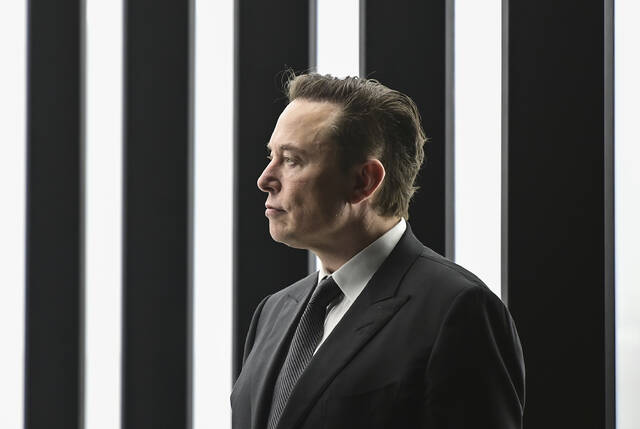https://development.triblive.com/opinion/lori-falce-why-are-we-reluctant-to-tax-billionaires/
Lori Falce: Why are we reluctant to tax billionaires?

Who wants to be a billionaire?
It’s an aspirational number that most people can’t truly fathom. Oh, they’d like to, but it’s hard to truly appreciate.
The median household income in Pennsylvania is around $50,000. If you were able to hold on to every penny — spending nothing on food or rent or utilities or gas — it would take a very long time to build that into a billion-dollar nest egg. A 20,000-year long time. For context, 20,000 years ago was when humans invented pottery.
This isn’t shaming people for their wealth. It’s purely a way to put impossible numbers in perspective.
That perspective is necessary because most of us will never be able to identify with the sums in question. The average American socks away around 7% of their monthly income, which would come out to a few hundred dollars. On Wednesday, Warren Buffet, the Berkshire Hathaway billionaire who keeps desperately trying to give away all his money, made $815 million. That was just on one day when the stock market didn’t even perform particularly well.
The lack of true understanding of the scope of a billionaire’s assets is probably part of why efforts to tax the uber-wealthy never succeed as easily as one might think. There is something about it that seems a little punitive.
You might never know what it is like to have a $1.2 billion yacht with room to land three helicopters like Russian oligarch Roman Abramovich. You probably know what it’s like to get a raise and see it disappear in taxes, leaving you with less than you had before. That’s the instinct we have when we hear arguments to up taxes on the rich.
And there is also the fond desire we all nurture in our hearts to one day have the kind of money that puts us in danger of that kind of tax. Maybe it would be a lottery win. Maybe it would be that little side business turning into the next Amazon. Whatever it is, it is easier to see ourselves as rich than it is to actually calculate the scope of that wealth.
That kind of empathy hurts us all. According to a 2021 ProPublica deep dive into 15 years of tax information, do the math on the way epic wealth grows — a way the average person’s worth doesn’t change — and you are looking at what they call a “true tax rate” of 3.4% or less for many of the super rich. White House figures put the average U.S. taxpayer’s rate from 2010-18 closer to 8.2%.
Take into consideration that Elon Musk’s $279.9 billion net worth is different than his annual income, and that is a big part of the difference between most Americans and billionaires. We pay on the money we we make every day, and for many living paycheck to paycheck, that’s all there is.
Billionaires have to be respected for what they bring to the table, which includes a lot of jobs. In Pennsylvania, the people in that rarefied group include the names behind Yuengling beer, Urban Outfitters, Universal Health Services, 84 Lumber, Dick’s Sporting Goods, Comcast, Erie Insurance, Campbell’s Soup and Mars candy.
But there is nothing unfair about asking that if the guy on the assembly line or the retail floor or the cable truck is paying an 8.2% tax rate, the guy whose net worth changes by millions every day be held to the same standard — even if that’s math many of us can’t even imagine.
Copyright ©2026— Trib Total Media, LLC (TribLIVE.com)
